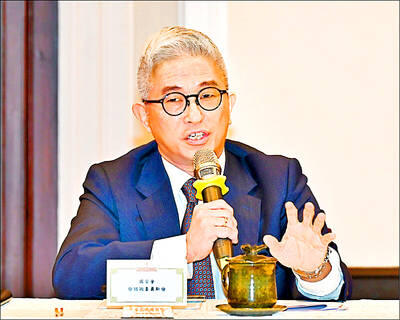European stocks fell this week after the US Federal Reserve said the pace of economic recovery was likely to be “more modest” than forecast and European industrial production unexpectedly declined.
Vedanta Resources PLC retreated 20 percent after saying it was in talks with Cairn Energy PLC to buy a stake in the oil explorer’s Indian unit. Micro Focus International PLC fell the most in the STOXX Europe 600 Index after it cut its revenue forecast. Food and beverage shares posted the biggest gain of 19 industry groups after Anheuser-Busch InBev NV reported second-quarter net income that beat forecasts.
The STOXX 600 fell 1.2 percent to 255.56, paring last week’s 1.3 percent rally. The gauge is trading 6.1 percent below this year’s high on April 15 because of concern that the global economic recovery is losing steam as indebted European governments slash spending and China takes steps to tame inflation.
Initial jobless claims in the US rose by 2,000 to 484,000 last week, the highest level in five months, Labor Department figures showed on Thursday. Economists had forecast claims would fall to 465,000, according to the median of 42 predictions in a Bloomberg News survey. Estimates ranged from 450,000 to 480,000.
European industrial production unexpectedly declined in June, led by a drop in durable consumer goods, such as furniture and home appliances. The industrial output of the 16 nations that use the euro dropped 0.1 percent from May, when it increased by 1.1 percent, the EU’s statistics office in Luxembourg said. Economists had predicted a gain of 0.6 percent, the median forecast in a Bloomberg survey showed.
National benchmark indices retreated in all 18 western European markets except Iceland. Germany’s DAX decreased 2.4 percent, the UK’s FTSE 100 dropped 1.1 percent and France’s CAC 40 slumped 2.8 percent.
European construction shares were the worst performing industry this week, dropping 5 percent. HeidelbergCement AG, the largest maker of aggregates used to produce concrete and asphalt, plunged 10 percent. Wienerberger AG, the world’s biggest brickmaker, fell 7.7 percent.
Vedanta, controlled by billionaire Anil Agarwal, lost 20 percent. The copper, zinc, aluminum and iron ore producer wants to acquire more than 50 percent of Cairn India Ltd, leaving the unit’s management in place, said two people with knowledge of the matter who declined to be identified because the talks are private.
Micro Focus, the UK business software maker whose clients include Tesco PLC, sank 33 percent. First-quarter underlying revenue was “flat,” missing management forecasts, the company said. Micro Focus predicted “low single-digit like-for-like revenue growth in the 2011 financial year instead of mid single-digit growth.”
Nobel Biocare Holding AG sank 14 percent, the stock’s biggest weekly decline since April. The company said second-quarter net income dropped 31 percent as expenses increased and the company’s sales failed to keep pace with its two closest competitors.
European food and beverage shares posted the best performance this week as Anheuser-Busch InBev reported net income of US$1.15 billion from US$1.07 billion a year earlier, beating the US$1.08 billion average of 11 analyst estimates compiled by Bloomberg.

A car bomb killed a senior Russian general in southern Moscow yesterday morning, the latest high-profile army figure to be blown up in a blast that came just hours after Russian and Ukrainian delegates held separate talks in Miami on a plan to end the war. Kyiv has not commented on the incident, but Russian investigators said they were probing whether the blast was “linked” to “Ukrainian special forces.” The attack was similar to other assassinations of generals and pro-war figures that have either been claimed, or are widely believed to have been orchestrated, by Ukraine. Russian Lieutenant General Fanil Sarvarov, 56, head

SAFETY FIRST: Double the number of police were deployed at the Taipei Marathon, while other cities released plans to bolster public event safety Authorities across Taiwan have stepped up security measures ahead of Christmas and New Year events, following a knife and smoke bomb attack in Taipei on Friday that left four people dead and 11 injured. In a bid to prevent potential copycat incidents, police deployments have been expanded for large gatherings, transport hubs, and other crowded public spaces, according to official statements from police and city authorities. Taipei Mayor Chiang Wan-an (蔣萬安) said the city has “comprehensively raised security readiness” in crowded areas, increased police deployments with armed officers, and intensified patrols during weekends and nighttime hours. For large-scale events, security checkpoints and explosives

‘POLITICAL GAME’: DPP lawmakers said the motion would not meet the legislative threshold needed, and accused the KMT and the TPP of trivializing the Constitution The Legislative Yuan yesterday approved a motion to initiate impeachment proceedings against President William Lai (賴清德), saying he had undermined Taiwan’s constitutional order and democracy. The motion was approved 61-50 by lawmakers from the main opposition Chinese Nationalist Party (KMT) and the smaller Taiwan People’s Party (TPP), who together hold a legislative majority. Under the motion, a roll call vote for impeachment would be held on May 19 next year, after various hearings are held and Lai is given the chance to defend himself. The move came after Lai on Monday last week did not promulgate an amendment passed by the legislature that

PENTAGON ASSESSMENT: A US report said that even as China and Russia deepen their partnership, cooperation is hindered by a ‘mutual distrust’ of each other The Chinese People’s Liberation Army (PLA) as of October had doubled the number of ships and airplanes deployed around Taiwan compared with the previous two years, Vice Minister of National Defense Hsu Szu-chien (徐斯儉) said yesterday, a day after the opposition-controlled legislature voted against reviewing the government’s general budget for next year, including a NT$1.25 trillion (US$39.71 billion) special defense spending bill. The legislature’s vote against the Ministry of National Defense’s spending plans was regrettable, as the budget was designed to respond to the developing Chinese military threat, Hsu said on the sidelines of a legislative meeting on the general budget. Defense